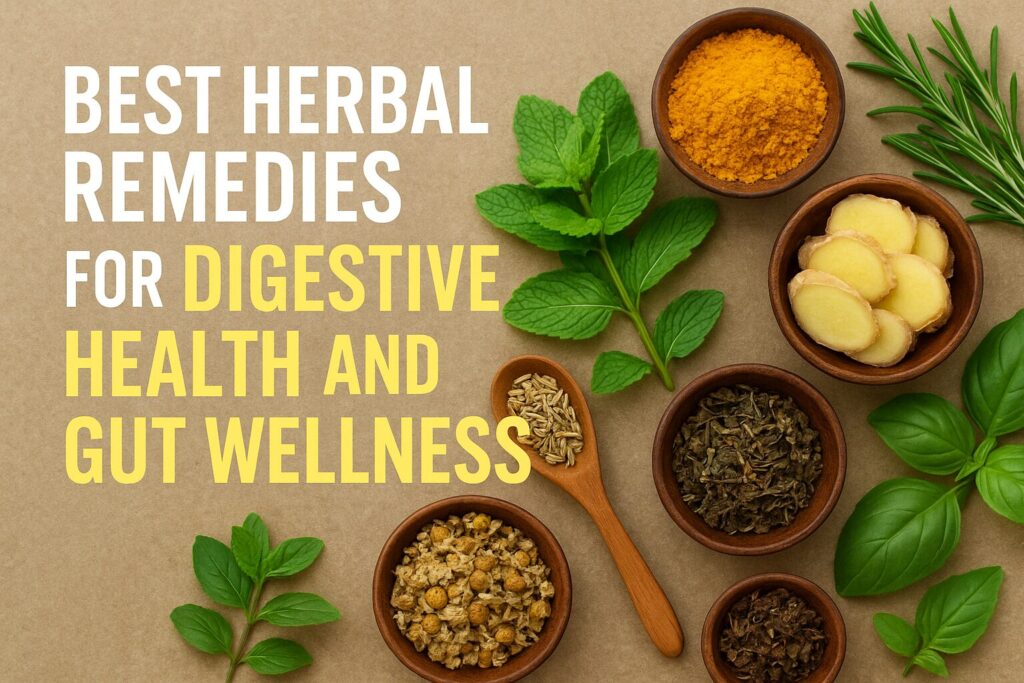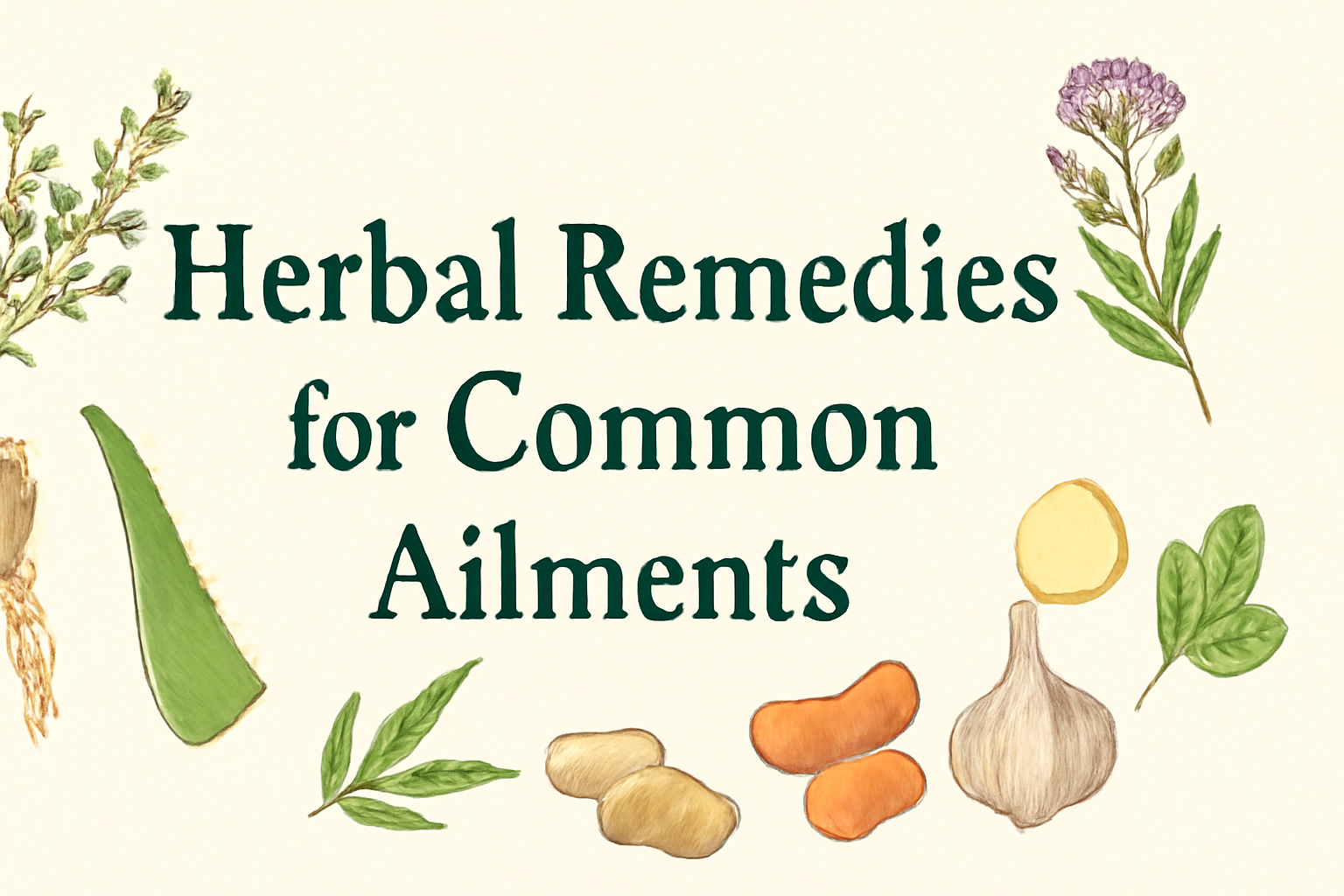In today’s fast paced life we are seeing digestive complaints at a much higher frequency. From the occasional bloating and indigestion to conditions like Irritable Bowel Syndrome (IBS) many people are experiencing these symptoms and desperately looking for ways gain back balance in their gut and with it comfort. Though regular medicine provides pivotal cures, interest in the ancient lore of herbs is growing with evidence behind it.
From Global Cuisines to Around-the-World Medicine
For centuries, cultures worldwide have known the power of plants as both food and medicine. These botanical heavy-hitters harbor complex compounds that can calm inflammation, kick digestion into gear, soothe spasms and tend to the delicate ecosystem of our gut microbiome.
This deep dive features the best herbs for digestive health squirreled out from under layers of folklore to reveal only those that have a true scientifically proven efficacy, and offers you a reliable guide to nature’s pharmacy for your gut.
The Gut: More Than Just Digestion
But before we dive into the solutions, it’s important we explain why gut health matters. The gut, particularly the intestines, is frequently referred to as the body’s “second brain” because of its extensive array of neurons and track record of manufacturing neurotransmitters like serotonin. It is the residence of trillions of bacteria, viruses and fungi that make up the gut microbiome.
You Need to Keep Your Microbiome in Balance to:
- Proper Digestion and Nutrient Absorption: Breaking food down into its smallest, most absorbable components.
- Strong Immune System: There are approximately 70-80% of our immune cells located in the gut.
- Mental Health: Gut-brain axis connects intestinal functions and emotional and cognitive centers of the brain.
- Barrier Integrity: An optimal gut lining protects against toxins and undigested food leaking into the blood supply.
Herbs help with those basic functions, using a holistic approach to gut health.
The Top Evidence-Backed Herbal Remedies
Some of the most thoroughly researched and beneficial herbs for optimal digestive harmony are:
Ginger (Zingiber officinale): The Digestive Wonder Herb
Why it Works: Ginger is rich in active compounds known as gingerols and shogaols, which promote gastric emptying — the process by which the stomach contents move into the small intestine. This clears the feeling of fullness, bloating and indigestion. Its anti-nausea effects are also well established, with studies supporting its use for morning sickness, chemo-induced nausea and motion-related queasiness.
Best For: Nausea, vomiting, stomach bloat, indigestion and loss of appetite.
How to Take: Fresh ginger tea, grated ginger in dishes, or ginger capsules (follow manufacturer recommendations). You can also suck on crystallized ginger.
What Science Says: Ginger is used to treat many types of nausea, menstrual cramps, osteoarthritis and diabetes. Clinical trials show it accelerates gastric emptying (WebMD).
Peppermint (Mentha × piperita): Calming and Antispasmodic
How it Works: The active ingredient, menthol, calms the smooth muscles of the gastrointestinal tract, easing IBS-related pain and discomfort. It works on multiple symptoms such as diarrhea, gas, bloating, cramping and urgency. Enteric-coated peppermint oil capsules deliver relief directly to the intestines.
Best For: Irritable Bowel Syndrome (IBS), abdominal pain, bloating and gas.
How to Use: Enteric-coated peppermint oil capsules (for IBS) or peppermint tea.
The Science Says: WebMD and WHO support peppermint oil’s use for IBS and colon spasms. German authorities approve peppermint tea for indigestion and colonic spasms.
Turmeric (Curcuma longa): The Golden Anti-Inflammatory
Why It Works: Turmeric’s active compound curcumin is a potent anti-inflammatory. It downregulates inflammatory pathways, helping reduce flares in conditions like Crohn’s and Ulcerative Colitis. It also stimulates bile production for fat digestion.
Best For: Inflammatory Bowel Disease (IBD), inflammation, dyspepsia (indigestion).
How to Use: Include turmeric in cooking (with black pepper to boost absorption) or take high-quality curcumin supplements.
What Science Says: WebMD and WHO cite turmeric as an aid for digestive issues and inflammation. Studies support curcumin’s benefits for ulcerative colitis and related conditions.
Slippery Elm (Ulmus rubra): The Soft and Tender Demulcent
How it Works: The mucilaginous sap of slippery elm forms a soothing gel that coats the mouth, throat, stomach and intestines. This barrier relieves irritation from acid reflux, gastritis and Crohn’s disease. It can also bind water to stools, aiding both diarrhea and constipation.
Best For: Heartburn, GERD, gastritis, Crohn’s disease, sore throat and cough.
How to Use: Slippery Elm bark powder in water or smoothies, lozenges or capsules.
The Science Says: WebMD lists slippery elm as possibly effective for coughs and sore throat. Its demulcent effects are widely recognized, and its safety profile is excellent.
Fennel (Foeniculum vulgare): The Carminative Seed
How it Works: Fennel contains anethol, which breaks up gas in the intestinal system, reducing bloating and flatulence. It also relaxes intestinal muscles to prevent cramping. Fennel tea is safe and effective for babies with colic.
Best For: Gas, bloating, infant colic and intestinal cramps.
How to Use: Chew a teaspoon of fennel seeds after meals, drink fennel tea, or use diluted fennel essential oil as directed.
The Science Says: Studies (e.g., Phytotherapy Research) show fennel seed oil reduces colic in infants. WebMD recognizes fennel’s digestive benefits.
Licorice Root (Glycyrrhiza glabra): The Adrenal and Gut Supporter
Note: Use DGL (Deglycyrrhizinated Licorice), which is safe for long-term use.
How it Works: DGL promotes mucus production, forming a barrier between the stomach and esophagus. It’s anti-inflammatory and antispasmodic, helpful for ulcers and gastritis.
Best For: Indigestion, peptic ulcers, canker sores and gastritis.
How to Use: Chewable DGL tablets, 20 minutes before meals.
The Science Says: WebMD notes DGL may be as effective for ulcers as prescription drugs but with fewer side effects.
Chamomile (Matricaria recutita): A Calming Nervine
How it Helps: Chamomile calms anxiety and stress, which are major contributors to digestive issues. It’s anti-inflammatory, antispasmodic and carminative, soothing both nerves and the gut.
Best For: Anxious stomach, IBS, indigestion, gas and relaxation.
How to Use: Drink chamomile tea, especially in the evening.
The Science Says: WebMD classifies chamomile as likely effective for anxiety. Its relaxant apigenin supports digestive comfort.
Artichoke (Cynara scolymus): Tonic for the Liver and Gallbladder
How it Works: Artichoke leaf extract stimulates bile flow from the liver and gallbladder, aiding fat digestion and nutrient absorption. It can relieve indigestion, bloating and nausea. It also feeds good gut bacteria.
Best For: Indigestion, bloating, nausea and liver support.
How to Use: Take standardized artichoke leaf extract supplements.
The Science Says: Studies (including in JAMA) show artichoke leaf extract relieves indigestion. WebMD notes its use for digestive problems and cholesterol.
Marshmallow Root (Althaea officinalis): The Gentle Healer
Why it’s a Good Food: Marshmallow root contains mucilage that coats the digestive tract, protecting from irritation and inflammation — from mouth to colon.
Most Effective On: Gastritis, GERD, peptic ulcers and inflammatory bowel conditions.
How to Use: Marshmallow root tea or capsules. Take away from medications since mucilage may slow absorption.
What Science Says: Germany’s Commission E approves marshmallow root for inflammation of the mouth, throat and stomach lining. It’s known for its demulcent, soothing properties.
Important Considerations Before You Begin
- Ask Your Health Professional: Consult a doctor before use, especially if pregnant, breastfeeding, taking medication or managing a condition. Herbs can interact with pharmaceuticals.
- Start Low, Go Slow: Begin with the lowest advised dose and monitor your body’s response.
- Quality Matters: Choose trusted brands that are third-party tested (look for USP, NSF or ConsumerLab seals).
- Read Your Body: Herbal medicine is personal; effectiveness varies between individuals.
- They’re Just One Piece of the Picture: Herbs work best alongside a healthy lifestyle — high-fiber diet, fermented foods, hydration, stress management and regular exercise.
In Conclusion: Back to Our Roots for Gut Health
There’s no single path to digestive wellness. These healing plants, time-tested by centuries of traditional use and increasingly supported by science, provide a gentle yet effective way to help our bodies. From the rapid anti-nausea effects of ginger to the slow sustained soothing of marshmallow root, our creator has given us an array of very effective tools for gut healing.
By learning the “why” and “how” of these plants, we can consciously choose them — not just for symptom relief but for long-term gut wellness. Accept the gifts of the earth, be wise in your choices, and honor what your body tells you as you restore digestive balance and vitality.


